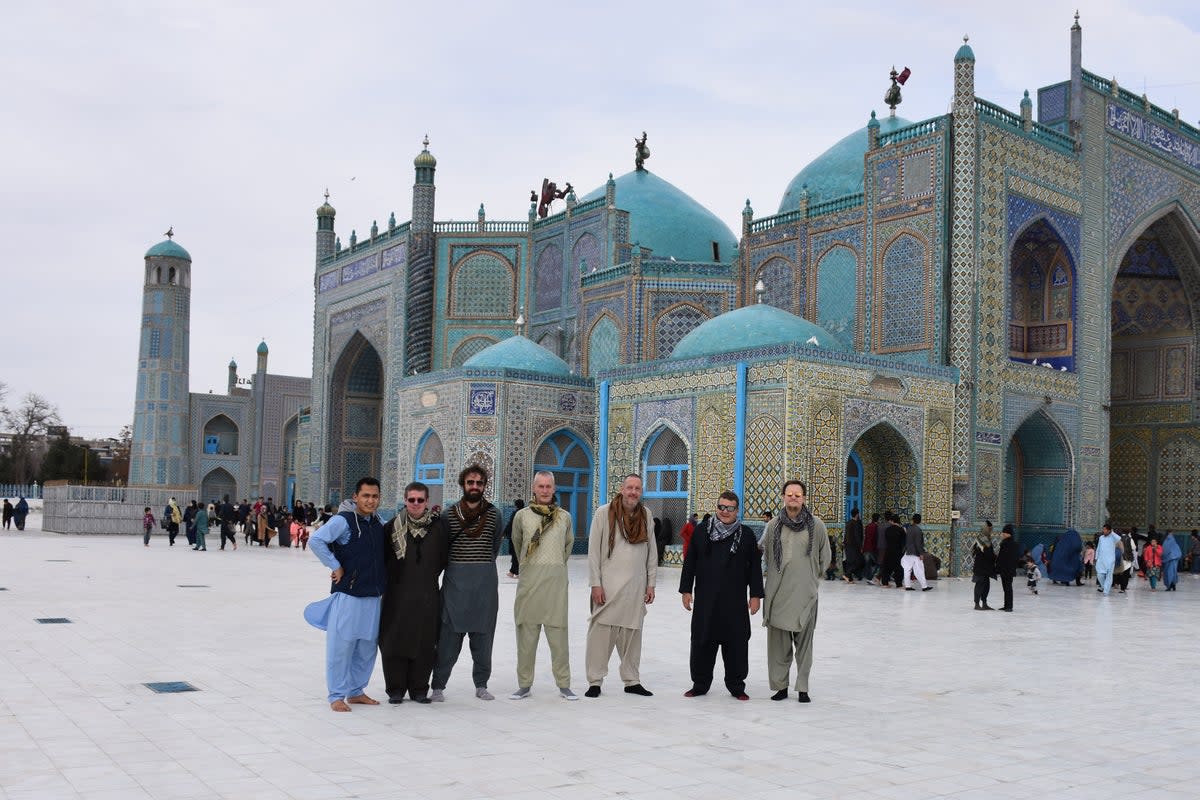Afghanistan is surprise top holiday destination for 2024, says travel company

“It’s completely blown me away,” said Dylan Harris, founder of Lupine Travel. “It’s the last place I expected to sell so well.”
The destination: Afghanistan, a country that the UK Foreign Office warns is “extremely dangerous”.
Mr Harris told The Independent: “Unbelievably this year, Afghanistan is our most popular destination.”
The Wigan-based extreme travel firm previously operated to Afghanistan, but dropped the country when the Taliban took over in 2021.
“We expected it to be up to a decade or more before it would be safe enough to travel there,” Mr Harris said.
“But it turned out in the end that it’s actually safer to travel there now than it was before, because the people who we were trying to avoid before are the people in charge.
“One of my staff members went over in September to do the initial research trip. That went well. Last month we put three trips on sale for next year. They sold out immediately.
“Now we’ve got eight trips next year and they’ve all completely sold out.
“There was always demand for it prior to the Taliban [takeover], but I think a lot of people were worried about safety. Whereas now people aren’t as concerned about the safety issue.
“The only thing: there’s a lot more red tape than there used to be. So every time we move from one city to the next, it’s a case of getting all the paperwork checked out.”
All eight tours for next year are sold out, with two tours available for 2025. The price of £2,250 covers 10 days of travel, taking in the capital, Kabul; the historic city of Herat; the Buddha niches in Bamiyan, where the Taliban destroyed the giant statues in 2001; Band-e-Amir National Park; through the Hindu Kush to Mazar-e-Sharif; religious sites in Balkh; and attending a traditional game of buzkashi – a distant cousin of polo, in which horse riders attempt to score by propelling a calf or goat carcass into a goal.
Flights are extra – involving travel via Abu Dhabi, Dubai or Istanbul.
The FCDO advises against all travel to Afghanistan. It specifically warns:
“There is an ongoing and high threat of terrorist attacks throughout Afghanistan, including around airports.
Travel throughout Afghanistan is extremely dangerous.
There is a significant risk of detention of British nationals.
Our ability to provide consular assistance is severely limited and cannot be delivered in person within Afghanistan.”
The Foreign Office adds: “If you choose to travel to Afghanistan against FCDO advice, monitor media reporting and make sure you have robust contingency plans in place. Be vigilant at all times, keep others informed including family and friends of your travel plans and consider your necessary routes in advance.”
Standard travel insurance policies issued in the UK are not valid in nations to which the Foreign Office advises against travel. Columbus, for example, says it will decline “any claim arising as a result of your travel to a country ... to which the Travel Advice Unit of the Foreign and Commonwealth Office ... has advised the public not to travel”.
The Independent asked Mr Harris about the ethical issue of travel to Afghanistan: effectively providing financial support to a regime that is internationally vilified.
“It’s always an ongoing issue with a lot of the destinations we work with. We don’t work directly with the Taliban. Obviously the Afghan embassies need to issue the visas. But the most important thing is: we get over there, we meet the local people.
“We don’t have any interaction with the Taliban. We’re meeting people who are really happy to see foreign faces coming back over and supporting hotels, supporting the local economy.”
One problem specific to Afghanistan is the treatment of female visitors. During the research trip, the Taliban decided that women were not allowed to visit a National Park near Bamiyan.
Mr Harris said the ban has now been revoked, but that alternative activities are being organised for some locations in case female travellers are excluded from parts of the main itinerary.


